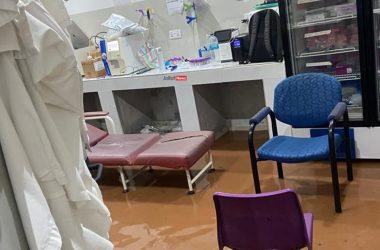
(JollofNews) – Type 2 diabetes is on the rise among the Afro-Caribbean population in the UK, and many are still unaware of the risk it poses to their health. Muritala Bakare finds out what is causing the rise.
Bola Pedro has just finished his evening dose of NovaRapid insulin injection, with his diabetes medication. He checks his blood sugar every day and has been living with this new lifestyle after being diagnosed with type 2 diabetes in 2016.
“It has been a life-changing experience for me.
“I am someone who used to eat a lot and didn’t watch my weight. My weight shot up to 112 kg at some point, and my appetite was still growing,” he says.
Bola, who will be 40 next month, only realised how dangerous this was to his health when he tried to get up from bed one morning and couldn’t.
“My chest was tight, and I was dizzy. I tried to get up several times but couldn’t, and held my chest in agony. Luckily my flatmate was around, so he dialled the emergency service number,” he says.
After undergoing a series of tests at the hospital, doctors say he had type 2 diabetes and a heart arrhythmia. “It was a shock for me because that was the first time I heard of those terminologies,” he says.
Type 2 diabetes is a condition that causes the blood sugar level in the body to become too high, and the pancreas resistant to insulin. Those from the Afro-Caribbean background are three times more prone to it.
“I have been at risk of this condition for a long time without knowing. My eating habit was bad, which also meant my risk of heart disease and stroke was very high,” says Bola.
Despite a 2015 Southall and Brent Revisited (SABRE) study that warned of the extent of the risk of type 2 diabetes among Afro-Caribbean people, many still lack the awareness of how severe it can be to their health.
“This is the first time I hear of such a report,” Bola says.
Claudine Thornhill, a Naturopathic Nutritionist with Noire Wellness, believes the problem is lack of awareness.
“It is important to empower people with information that will transform their lives.
“More people from the Afro-Caribbean background are being referred by GPs due to an increased risk of developing type 2 diabetes,” she says.
The health and well-being coach also said the rise in the condition could be reduced by “managing our stress level, and eating our traditional food moderately.
“Our cultural food are inherently not bad, but some of them can be problematic,” she says. “What I tell people is to eat their meals with a lot of vegetables so as to get a balanced diet.”
She also says exercise is a good way to manage the risks of diabetes. “People would benefit from exercise. It doesn’t have to be the gym. Walking is a good form of exercise, and can reduce the risks associated with high blood sugar level.”
Claudine who’d worked with the NHS’s Healthier You National Diabetes Prevention Programme says it is important to empower people with information that will transform their lives.
“We have to focus on education and support lifestyle changes which include diet and physical activities that would help reduce the risk of developing the condition.
“We need to start rethinking our lifestyle and also create more awareness,” she says.
Professor Nishi Chaturvedi, clinical epidemiology at University College London, thinks “because many people are living with the condition and seem fine, it’s seen as inevitable and not taken seriously.
“It’s never too early or too late to make lifestyle changes such as losing weight and being more physically active,” she says
For Bola, these are the changes he has started making and has been advising friends and families on the risks associated with type 2 diabetes.
“I go to the gym regularly now, and my eating habits have drastically changed,” he says.
“This has helped in the reduction of my sugar levels, and hopefully soon I will stop the insulin.”
For more information about type 2 diabetes visit here:




